The conference was attended by over 1,400 participants from 51 countries in Europe and beyond. During the event more than 1,000 academic presentations were delivered in more than 100 themed sessions and two plenary sessions by Prof. Eszter Hargittai, Dr Lina Dencik as well as Prof. José Van Dijck and Dr Thomas Allmer. The plenaries focused on the central theme of the conference, ‘Centres and Peripheries: Communication, Research, Translation’ and addressed some of the most pressing pan-European issues in the field of media and communication. One of the sessions, delivered in the format of a critical intervention, focused on the issues surrounding the exploitation of academics in the field. Among the conference organising committee members was Dr Paweł Surowiec of the Faculty of Media of Communication, who also serves as the ECREA’s Treasurer. For more information about the conference follow #ECREA2018 or speak to the ECREA Coordinator in the Faculty, Dr Einar Thorsen (Ass. Prof.). The next biennial ECREA conference, 8th European Communication Conference, will take place between 2-5 October 2020. The event will be hosted by the University of Minho in Braga, Portugal.
Category / Featured academics
Nepal paper by Lesley Milne (CMMPH)
Congratulations to Lesley Milne, senior lecturer in midwifery, on the acceptance of her latest paper on maternity care in Nepal. This new paper ‘Gender inequali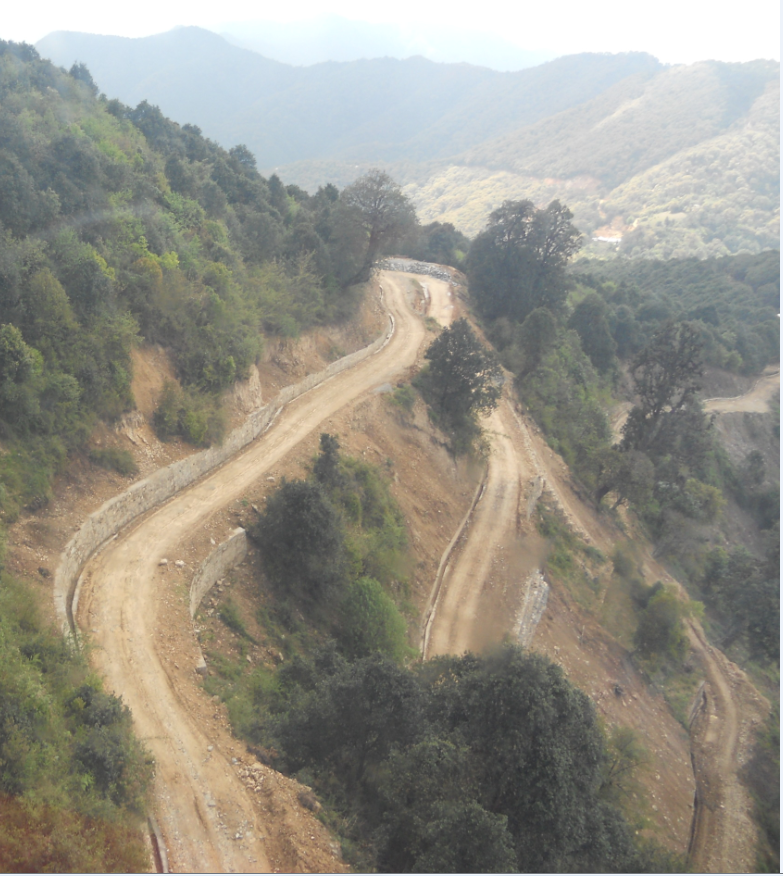 ties and childbearing: A qualitative study of two maternity units in Nepal’ will appear soon in the Open Access publication: Journal of Asian Midwives [1]. This is the second publication from a qualitative research study undertaken in two birthing facilities in Kathmandu Valley to examine barriers to women accessing these services from the perspective of hospital staff [2].
ties and childbearing: A qualitative study of two maternity units in Nepal’ will appear soon in the Open Access publication: Journal of Asian Midwives [1]. This is the second publication from a qualitative research study undertaken in two birthing facilities in Kathmandu Valley to examine barriers to women accessing these services from the perspective of hospital staff [2].
The study received financial support from Wellbeing of Women and the RCM (Royal College of Midwives) as Lesley won their first International Fellowship Award. The study was a collaboration led by Lesley in the Centre for Midwifery, Maternal & Perinatal Health (CMMPH) with two of FHSS’s Visiting Faculty, namely Prof. Padam Simkhada who is based at Liverpool John Moores University and Jillian Ireland, Professional Midwifery Advocate based at Poole NHS Hospitals Foundation Trust.
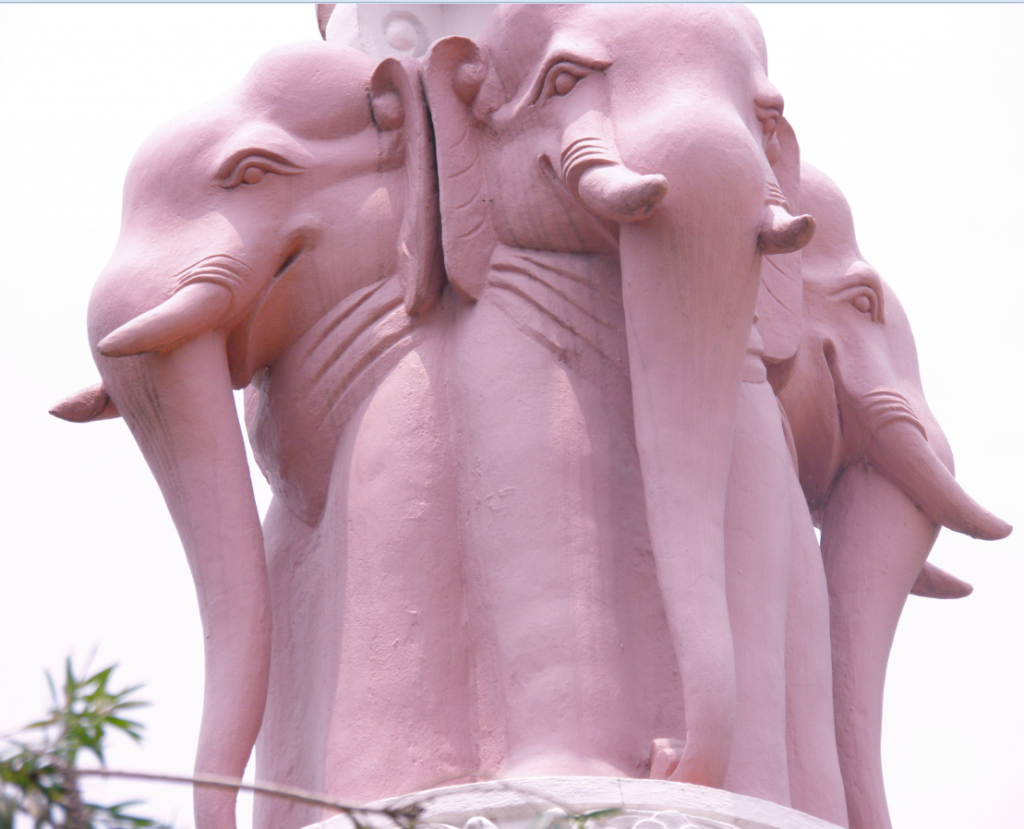
Well done!
Profs. Vanora Hundley & Edwin van Teijlingen
References
- Milne, L., Ireland, J., van Teijlingen, E., Hundley, V., Simkhada, P.P. (2018) Gender inequalities and childbearing: A qualitative study of two maternity units in Nepal, Journal of Asian Midwives (accepted).
- Milne, L., van Teijlingen, E., Hundley, V., Simkhada, P., Ireland, J. (2015) Staff perspectives of barriers to women accessing birthing services in Nepal: A qualitative study BMC Pregnancy & Childbirth 15:142 www.biomedcentral.com/1471-2393/15/142 .
Café Scientifique: Facing our Future Self
Think about your future ageing or old age.
What thoughts and feelings come to mind?
At the recent October Cafe Scientifique event, Dr Curie Scott from the Centre for Excellence in Learning asked a packed audience at Café Boscanova in Boscombe, Bournemouth these questions.
Ageing populations
As a trained medical doctor and educator of health professional students, Curie became aware of the impact of ageing populations. In 2017, global population trends reversed: there are now more people over 65 years old than under five years old (United Nations, 2013). Nearly one in five people currently alive in the UK will get to their hundredth birthday (Department for Work and Pensions, 2011).
We are ageing. But we remain uncomfortable about talking about it.
Using drawing to discuss ageing
For her research, she was interested in whether drawing might help us talk about our future. She invited health professional students and people over 60 to a specially designed Drawing Programme to think about their future ageing. This was a four week expressive mark-making workshop-based programme. Examples of drawings were on display at the cafe. Of the five drawings linked to ageing, the masks (below) were the final drawing as it was the most personal.
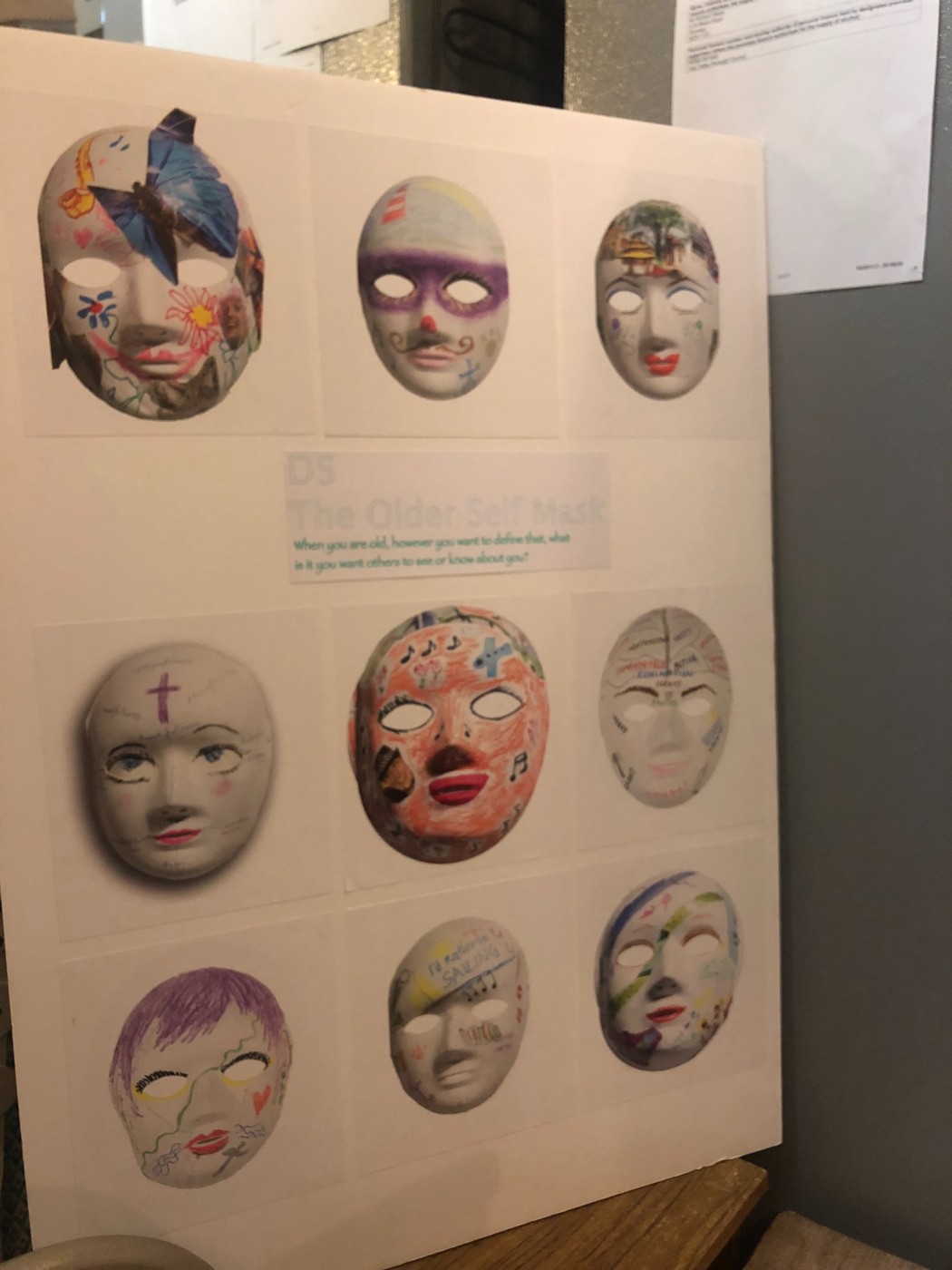
Challenging the accepted Cultural ‘truths’ about ageing
It is clear that ‘older people’ are an ‘othered’ group. That is, we want to separate ourselves from being labelled ‘old’. The Drawing Programme facilitated openness and a willingness to consider the myriad ‘what-ifs’ of ageing. Participants noted ‘truths’ or ‘assumptions’ of ageing which they had absorbed from their surrounding Culture ageing. These were predominantly negative:
- Ageing is relative, dependent on one’s age
- Ageing is about decline with core and peripheral losses
- With ageing, one is concealed and outcast from society
- With increasing age, one is less valued
- Ageing as a discussion topic is taboo
- Ageing is ugly and is especially harsh to women
These myths echoed responses by those at Café Scientifique. Comments about the future included concerns about ill health, dependency, and loneliness. Positive aspects were about greater confidence, time to enjoy leisurely pursuits and have more time with family and friends.
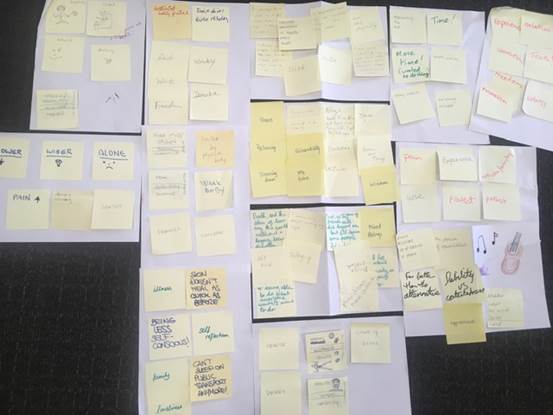
Returning to the research, over the three month study period, participants interrogated their assumptions. They disentangled from dominant negative threads and chose new ways of being. They described some powerful shifts in thinking and behaviour. They shared a stronger internal sense of agency and choice – not that ageing would just ‘happen’ but that we all have choices we can make for and about our future ageing.
At the deepest level of consideration, participants could visualise themselves, and indeed accept, that they were likely to become old. They took control of the time they had left. At 73 years old, Veronica (not her real name) declared that the study propelled her into fulfilling her lifelong dream of playing the saxophone. With a strong family history of deaths in their sixties, Eva (not her real name) responded by changing her health behaviour and asking for health screening tests.
Drawing helped adults to think, explore, and articulate on the emotive topic of their future ageing. Curie ended with a line from the poem ‘Snow’ by poet laureate Carol Ann Dufffy which is carved on a stone in Durlston Country Park.
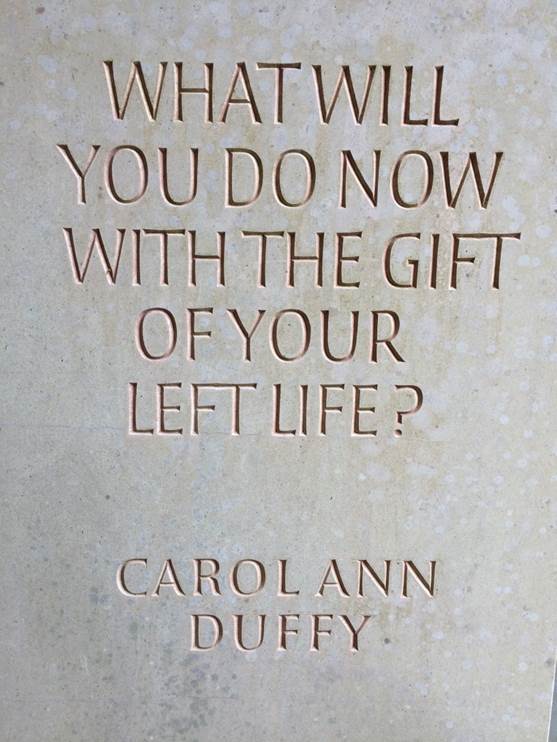
If you are interested in knowing more about the drawing workshops or perceptions of ageing, contact me at cscott@bournemouth.ac.uk
The next Cafe Scientifique by Xun He is on next week, Tues 6th Nov, on “Working together: When your mind is in my mind”
References
Department for Work and Pensions, 2011. Number of Future Centenarians by Age Group [online] Available at: https://assets.publishing.service.gov.uk/government/uploads/system/uploads/attachment_data/file/223173/centenarians_by_age_groups.pdf
United Nations, 2013. World Population Prospects: The 2012 Revision. United Nations Population Division of the Department of Economic and Social Affairs. Available at: https://population.un.org/wpp/Publications/Files/WPP2012_HIGHLIGHTS.pdf
BU Academic Research presented at prestigious ACE sponsored Conference

Dr Nigel Williams, Department of Leadership, Strategy & Organisation
Dr Nicole Ferdinand, Department of Events and Leisure and Dr Nigel Williams, Department of Leadership, Strategy and Oraganisation presented their research on the Notting Hill Carnival at the prestigious ACE sponsored 7th Biennial Steelpan Conference: Steelpan, Calypso and Mas. This year’s theme was Empowering the Youth to lead the UK transformation of Carnival Arts: Celebrating Windrush 70. Among the attendees were keynote presenter Dr John Cowley, one of the most well-known authorities on Caribbean Carnival traditions, Mr Matthew Phillip, Executive Director Notting Hill Carnival Ltd and His Excellency Orville London, High Commissioner for Trinidad and Tobago, United Kingdom.

Dr Nicole Ferdinand, Department of Events and Leisure, with fellow presenter Ray Mahabir, Director, Sunshine International Arts
Dr Ferdinand and Dr Williams presented a paper entitled Evolution of Notting Hill Carnival: from a Community Festival to a Global Phenomenon. It focused the role of politics and power in transforming the Notting Hill Carnival. Other papers presented in their session were:
- Insights into Artistic Design: Techniques for Street Carnivals – presented by Ray Mahabir
- Moko Jumbies: Dionysian Explosions as Tradition, Myth & Mayhem – presented by Ansel Wong
- Participation versus Performance: Who’s to Judge – presented by Katie Segal
- Talk and Drums: The Role of Orality in British Caribbean Carnival and Steelpan – presented by Tola Dabiri
- Know de Gayelle: Using the Art and Practice of Stick fighting to Realise Cultural Transformation in Youths – The Bois Academy – presented by Dr Susan Burke
Icons and Inspirations: Alan, Tamsin and Alex

Left to right: Alan Sinfield, Tamsin Wilton and Alexander Doty
Whilst researching a new Level 5 ‘Media Perspective’ unit (Life Stores and the Media) for the Department of Media Production, I decided to discuss the concept of ‘dissident reading’ within the lectures, relating the work of Alan Sinfield in this area. In doing this, I not only checked out if our library had the relevant book Cultural Politics – Queer Reading, which we did, but also I thought that I would just check out (online) what Alan is working on now.
Alan Sinfield had been a catalyst in my research journey, as way back in 2004 when I was in the final stages of my PhD, Alan had invited me to speak at a research seminar workshop at the University of Sussex. I remember that Alan was a little critical of my interest in the ‘carnivalesque’, but largely supportive. That seminar offered me a great experience in developing my ideas for the eventual PhD at Bournemouth, and it provided me with a much-needed psychological boost, as the PhD submission date loomed. I remember at the time I had asked Alan some probing questions regarding his new research interests. Alan’s work was fundamental in developing gay and lesbian studies in theatre and popular culture. He replied that he was working on something new, concerning ageing. It was remiss of me to not follow up on this, despite having more contact with the University of Sussex in other areas later on, such as working with Sharif Molabocus who contributed to two of my edited collection books, and also working there as an external PhD examiner. On searching for Alan’s latest work, I discovered that he had passed away last year, aged 75.
In thinking through my meeting with Alan in 2004, I had not realized that soon after this he would retire, as Parkinson’s disease would effect his speech. Now I maybe understand Alan’s interest in writing about ageing, at a time when his life must have been changing. The loss of Alan also made me think about others in the LGBT and queer studies media research community who I have met that are no longer with us.
Before I was accepted to study my PhD at Bournemouth, I had applied to the University of the West of England. When the panel interviewed me, I met Tamsin Wilton, whose ground-breaking book was entitled Immortal, Invisible: Lesbians and the Moving Image. While I did not get the doctoral scholarship at UWE, Tamsin confided in me that her research was mostly done within her own time, suggesting that at that time the department thought her work was ‘too radical’. Tamsin passed away in 2006, only a few years after we met, and I remember thinking how much we have lost in her passing, her work was revolutionary, and she genuinely encouraged me to press on with my research, in times when LGBT studies were less popular.
Besides the loss of Alan Sinfield and Tamsin Wilton, I cannot forget the sudden loss of Alexander Doty. Similar to meeting Alan and Tamsin early in my research journey, I briefly met Alex when he was presenting at the feminist Console-ing Passions Conference in Bristol in 2001, a conference that I would eventually co-organise this year at Bournemouth. In 2001, I was studying for an MA at Bristol, and I had never been to an academic conference before, but we were required as students to help out. I remember attending Alex’s paper on the TV series Will and Grace, and I had a brief conversation with him over coffee. Somehow, I made some links between his ideas, and those that I was studying, and I am forever grateful to Alex for his work, and his non-pretentious demeanour. Although if I am honest, I was a little in awe of him, and at the time I could have never imagined that I could have published my academic work.
So I think, often we encounter inspirational researchers along the way, at conferences, seminars, symposiums, and even in interviews. For me, the loss of Alan Sinfield, Tamsin Wilton and Alex Doty, almost seems too much to bear, as clearly they had far more to offer, despite their remaining stellar work. In the manner where I discussed the legacy of Pedro Zamora (the HIV/AIDS activist) and the meaning of a life cut short, theoretical and political ideals potentially live on. Our task is not only to remember all that potential, but also to continue it in any way we can.
Journal of Asian Midwives
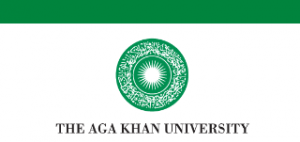 As co-editor of the Journal of Asian Midwives I receive occasional updates from the Aga Khan University (AKU) library in Pakistan on the number of downloads of articles published in the journal. The journal is fully Open Access and does not charge a submission or processing fees! All articles in the Journal of Asian Midwives are stored online in the AKU Institutional Repository. The latest update with data until end of September 2018 informed us that there had been: 18,462 downloads, from 167 countries/regions, across 56 articles. Nearly 20,000 downloads is not bad for a fairly new journal, which only published its inaugural issue online in 2014.
As co-editor of the Journal of Asian Midwives I receive occasional updates from the Aga Khan University (AKU) library in Pakistan on the number of downloads of articles published in the journal. The journal is fully Open Access and does not charge a submission or processing fees! All articles in the Journal of Asian Midwives are stored online in the AKU Institutional Repository. The latest update with data until end of September 2018 informed us that there had been: 18,462 downloads, from 167 countries/regions, across 56 articles. Nearly 20,000 downloads is not bad for a fairly new journal, which only published its inaugural issue online in 2014.
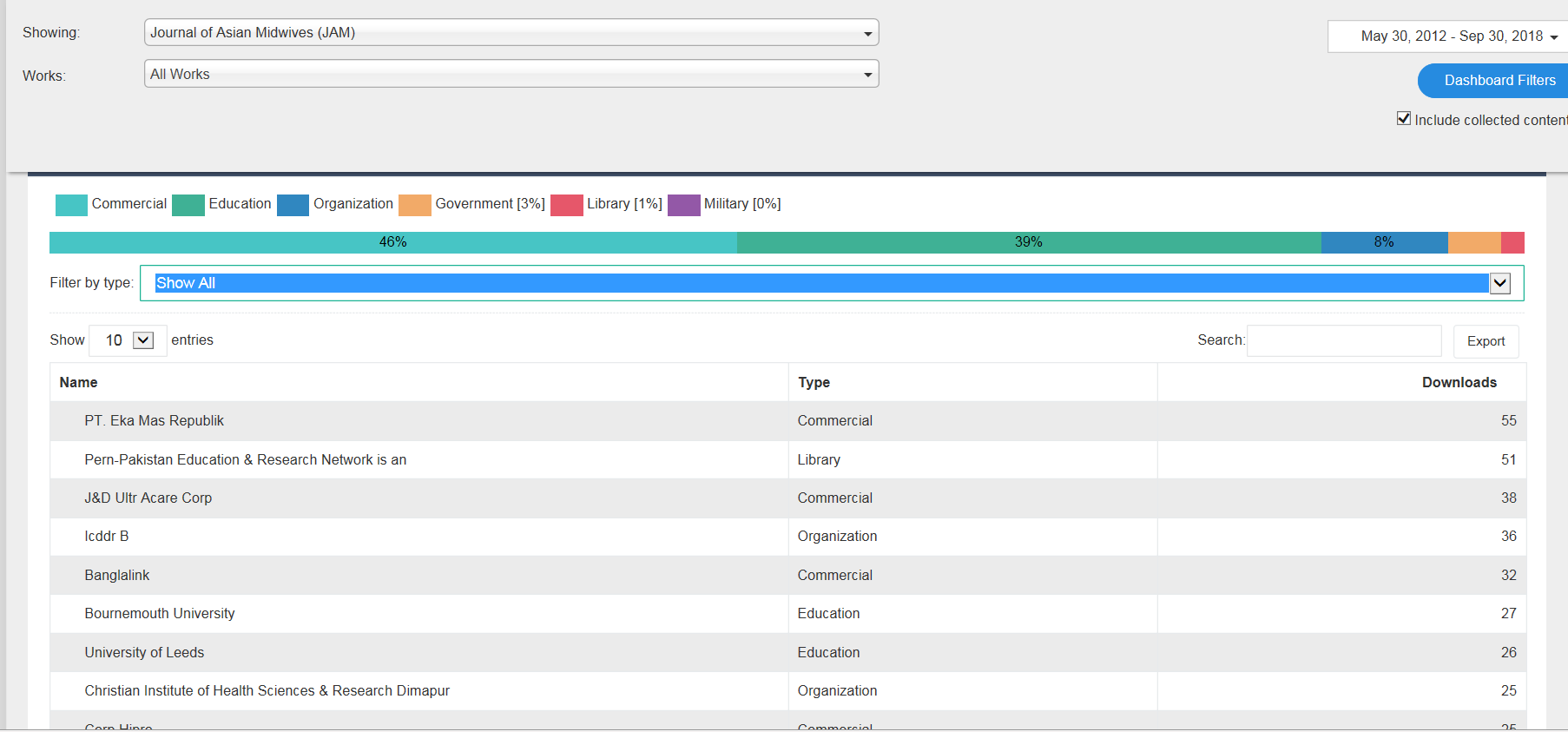 What is interesting is that the detailed download figures show that Bournemouth University is the highest ranking university of all the downloading organisations. Listed as fifth on the download list, Bournemouth is behind two commercial organisations, the Pakistan library network and Bangladesh-based Icddr-B. The latter is one of the largest NGO (Non-Governmental Organisations in the world based on staff numbers. Of course it helps that Bournemouth academic staff and PhD students have published five scientific articles in the past four editions of the journal [1-5].
What is interesting is that the detailed download figures show that Bournemouth University is the highest ranking university of all the downloading organisations. Listed as fifth on the download list, Bournemouth is behind two commercial organisations, the Pakistan library network and Bangladesh-based Icddr-B. The latter is one of the largest NGO (Non-Governmental Organisations in the world based on staff numbers. Of course it helps that Bournemouth academic staff and PhD students have published five scientific articles in the past four editions of the journal [1-5].
Prof. Edwin van Teijlingen
CMMPH (Centre for Midwifery, Maternal & Perinatal Health)
References:
- Ireland, J., van Teijlingen, E., Kemp, J. (2015) Twinning in Nepal: the Royal College of Midwives UK and the Midwifery Society of Nepal working in partnership, Journal of Asian Midwives 2 (1): 26-33.
- Mahato, P., van Teijlingen, E., Simkhada, P., Angell, C. (2016) Birthing centres in Nepal: Recent developments, obstacles and opportunities, Journal of Asian Midwives 3(1): 18-30.
- Baral, YR., Lyons, K., van Teijlingen, ER., Skinner, J., (2016) The uptake of skilled birth attendants’ services in rural Nepal: A qualitative study, Journal of Asian Midwives 3(3): 7-25.
- Sharma, S., Simkhada, P., Hundley, V., van Teijlingen, E., Stephens J, Silwal, R.C., Angell, C. (2017) Evaluation a Community Maternal Health Programme: Lessons Learnt. Journal of Asian Midwives. 4(1): 3–20.
- Mahato, P., van Teijlingen, E., Simkhada, P., Angell, C. (2017) Determinants of quality of care & access to Basic Emergency Obstetric & Neonatal Care facilities & midwife-led facilities in low & middle-income countries: A Systematic Review, Journal of Asian Midwives 4(2):25-51.
Policy impact – a great idea but it’s a nightmare to do – so why get involved?
We wrote about policy impact on this blog in May 2018. Since then we have continued to work with a number of academic staff across BU and with RKEO to support the development of policy impact. But it’s hard – not just for us, but for the academic staff involved.
What is policy impact? This is from the Cambridge University guide: “Making your research agenda and research findings relevant to policymaking in a way that has an impact on how policy is formed, implemented or understood.” And importantly the definition goes on “Whether and how this happens is something that researchers (or groups of researchers) can influence and manage.”. That’s the bit we want to talk about.
[Other guides are available: Nottingham University has one, UCL have a whole set of externally available materials, the LSE impact blog , to name just a few.]
Why is it so hard?
- Because it takes a long time – and who has time to start long term projects?
- Because the effort required is disproportionate to the reward – at least in the short term
- Because the timing NEVER works
- Because politicians are only interested in the things they are interested in – which is not what you’re interested in
- Because politicians want short term results and have short attention spans – and research doesn’t work like that
All of these are probably true. The Cambridge University guide lists reasons to be involved in policy impact – the final one sums up these challenges: “To make your role more interesting and challenging”. It will definitely do that.
Over the last few months we have been privileged to work with staff on some internal projects responding to external requests – and we’ve learnt a lot. In May we wrote “…timing is everything and policy engagement is a two track process – the long term plan to engage those with long term, deep or personal interests in the relevant area, and the short term opportunistic engagement. The most important thing is to start now, including by preparing for the opportunistic engagement. If your issue suddenly becomes topical it will be much easier if you have prepared and don’t have to start writing overnight. And you’re more likely to be heard if people have heard about you and your research before.”. And remember our most important advice for this sort of engagement – to make it easy because no-one (externally) has to listen.
So what happens when we suddenly have to arrange a visit for an external VIP or send some representatives to a round table? We identify the theme or the purpose and then we talk to RKEO, think about the people we know, look at the M&C experts directory and ask around generally, to find the people who have the most relevant and interesting story to tell. And then we make all sorts of trouble for you. We need biographies and briefings for the VIP. We ask you to update your staff profile. We need you to customise your presentations for a lay audience and a 10 minute time slot. We want accessible and visual content, experiential content is even better. We make difficult requests for props and equipment. We need you to rehearse – sometimes not just for us but for representatives from the relevant Department as well, who add all sorts of additional requirements. We probably have to change the timing two or three times. And sometimes the VIP has a better offer or a political crisis comes up and we cancel everything at the last minute. It’s a nightmare.
And what’s the incentive? The visit will go well and the VIP is likely to talk about it in all sorts of situations afterwards. They love doing that – it shows that they are connected: “when I was at…”. They may put you in touch with other people in a way that leads to engagement or collaboration or helps Parliament recognise you as an expert in your field. They may have arrived with one perception of BU and leave with a different one. And there is a direct benefit for the individual academic staff too – because the material you produced is in the bank for next time – and you and we may be able to start using it more widely straight away. We usually follow up with the VIP afterwards. And we will know more about your work and will be better able to support you with policy related matters in the future.
It’s the same with select committee inquiries and government consultations. They come in with a short deadline (about three weeks). They ask questions that are nearly relevant to your research but not quite. They want evidence or responses in a particular format. It always clashes with a project deadline or teaching or marking. They take months to publish the responses – and when it’s evidence to a committee, it has to be an original submission that you have not used for anything else and that you can’t publish anywhere else until after they have published it themselves. They don’t follow up on most submissions. And government consultation responses often acknowledge, but then do not follow, the weight and direction of the responses.
So why should you drop everything to write a response or submit evidence? Because lots of people don’t. We find that often there are only half a dozen direct responses from universities to such things. Many universities rely on the sector bodies or societies to submit weighty responses on their behalf. And that is great, and they may be weighty and have a correspondingly important impact on the outcome. But what if we have something different or interesting to say? What if the committee or the Department is looking for voices that are outside the mainstream? You might only comment on one part of a larger set of questions but have evidence no-one else has. You might agree or disagree with the received wisdom on something but your view and perspective might make readers think twice about their assumptions. And it will get your name and your research out there – you might get called to give evidence or be quoted in the report or response, it may lead to contact in the future when people research the area.
And all of these are steps towards policy impact. So if you’re doing this stuff already, that is great. The people we have worked with at BU have been wonderful – patient, good humoured, responsive and impressive.
And with all this in mind we’d like to recognise, and thank, just a few of those we have bothered recently:
- Hamid Bouchachia
- Christos Gatzidis
- Zulfiqar Khan
- Peter Hills
- Peter Truckel
- Sarah Bate
- Elizabeth Falconer
- Jan Wiener
- Matthew Bennett
- Marcin Budka
- Tom Wainwright
- Vicky Isley
- Paul Smith
- Jian Chang
We’re very grateful. And we really believe that this will be a benefit for you and your work.
And if you’re not doing it, we’d like to add you to our list of candidates for the next opportunity. Please contact us and tell us how your work will make a difference to society and what is the change you want to see as a result of your work. And working with colleagues in RKEO and M&C we will do our best to help you navigate the nightmare and make steps towards seeing that change happen.
PS we have designed a practical workshop on influencing policy makers that you can try. Please contact us to discuss how you might use it.
PPS there are many others we should thank but the list would be too long, including other academic colleagues and colleagues from M&C, RKEO, Estates, IT and elsewhere. You’re all brilliant!
Congratulations to Dr. Alison Taylor
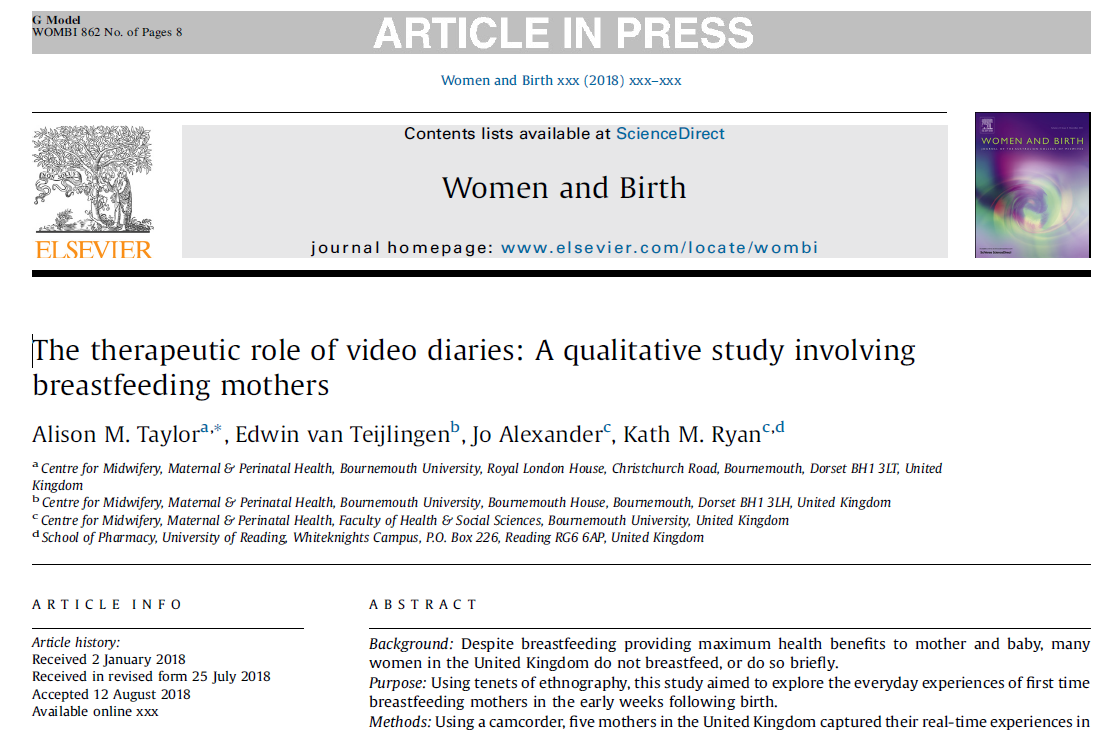 Congratulations to Dr. Alison Taylor whose PhD paper ‘The therapeutic role of video diaries: A qualitative study involving breastfeeding mothers‘ has just appeared online [1]. This paper, in Women and Birth (published by Elsevier), was co-authored with her PhD supervisors Prof. Emerita Jo Alexander, Prof. Kath Ryan (University of Reading) and Prof. Edwin van Teijlingen.
Congratulations to Dr. Alison Taylor whose PhD paper ‘The therapeutic role of video diaries: A qualitative study involving breastfeeding mothers‘ has just appeared online [1]. This paper, in Women and Birth (published by Elsevier), was co-authored with her PhD supervisors Prof. Emerita Jo Alexander, Prof. Kath Ryan (University of Reading) and Prof. Edwin van Teijlingen.
The paper highlights that despite breastfeeding providing maximum health benefits to mother and baby, many women in the United Kingdom do not breastfeed, or do so briefly. Alison’s study explored in a novel way the everyday experiences of first-time breastfeeding mothers in the early weeks following birth. Five UK mothers were given a camcorder to capture their real-time experiences in a video diary, until they perceived their infant feeding was established. This meant that data were collected at different hours of the day by new mothers without a researcher being present. Using a multidimensional approach to analysis, we examined how five mothers interacted with the camcorder as they shared their emotions, feelings, thoughts and actions in real-time. In total mothers recorded 294 video clips, total recording time exceeded 43 hours.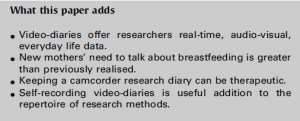
This paper focuses on one theme, the therapeutic role of the camcorder in qualitative research. Four subthemes are discussed highlighting the therapeutic impact of talking to the camcorder: personifying the camcorder; using the camcorder as a confidante; a sounding board; and a mirror and motivator. The paper concludes that frequent opportunities to relieve tension by talking to “someone” without interruption, judgement or advice can be therapeutic and that more research is needed into how the video diary method can be integrated into standard postnatal care to provide benefits for a wider population.
Alison is Senior Lecturer in Midwifery and a member of the Centre for Midwifery, Maternatal & Perinal Health.
Reference:
- Taylor, A.M., van Teijlingen, E., Alexander, J. & Ryan, K. The therapeutic role of video diaries: A qualitative study involving breastfeeding mothers, Women Birth (2018), (online first) https://doi.org/10.1016/j.wombi.2018.08.160
10 years of graphics and serious games research
We would like to invite you to the first research seminar of the new academic year for the Centre for Games and Music Technology Research.

Title: 10 years of graphics and serious games research
Speaker: Dr Vedad Hulusic
Bournemouth University
Time: 2:00PM-3:00PM
Date: Wednesday 17 October 2018
Room: F112 (Fusion Building)
Abstract:
As a new member of the Games team, CT, SciTech, in this talk I will give an overview of my work over the past 10 years. I will start with my early research career, as a PhD student at the University of Warwick, where I worked on auditory-visual cross-modal interaction for computer graphics. I will then present some work on virtual reconstruction of cultural heritage I have done in Bosnia and Herzegovina, where I worked as an Assistant Professor. In 2015 I moved to France (Télécom ParisTech) where I worked on high dynamic range imaging (HDRi), and image and video quality assessment. Finally, I will talk about serious games for children diagnosed with Autism Spectrum Disorder (ASD), the area I work in for the past 6 years and the current main area of interest. Here, I will cover some basic aspects of the theoretical framework we used for creation of our games, as well as main findings and plans for future.
We hope to see you there!
Two weeks in one
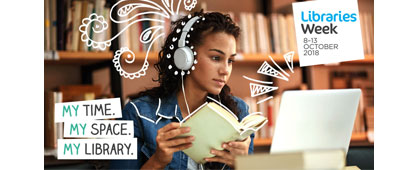 This week 8-12 October is both Mental Health Week and Library Week, and both are celebrated widely at Bournemouth University. On Thursday Prof. Edwin van Teijlingen will present on research on mental health and maternity care in the Centre for Midwifery, Maternal and Perinatal Health (CMMPH) as part of in the BU Library Week celebrations.
This week 8-12 October is both Mental Health Week and Library Week, and both are celebrated widely at Bournemouth University. On Thursday Prof. Edwin van Teijlingen will present on research on mental health and maternity care in the Centre for Midwifery, Maternal and Perinatal Health (CMMPH) as part of in the BU Library Week celebrations. 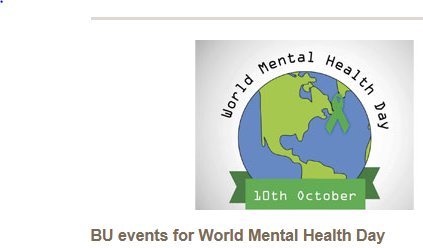
The presentation includes some of the findings from out recently completed THET-funded study on a maternal mental health intervention in southern Nepal as well as some reflections on working and researching in the country. The slides for tomorrow’s presentation can be found at LinkedIn, click here!
International Conference on Migration Health (Rome)
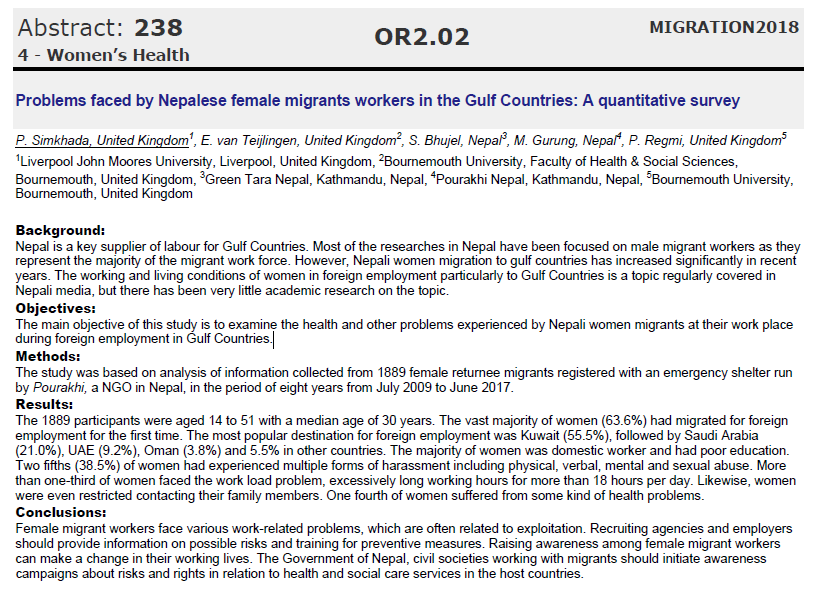 Two days ago Bournemouth University Visiting Professor Padam Simkhada presented our paper ‘Problems faced by Nepalese female migrants workers in the Gulf Countries: A quantitative survey’ at the International Conference on Migration Health in Rome, Italy [1]. The study reports on the health and other problems experienced by Nepali women migrants at their work place during foreign employment in Gulf Countries. The paper is building on earlier research with the charity Pourakhi in Kathmandu which helps women who return from working abroad in trouble. The first paper was publish earlier this year in the journal BMC International Health & Human Rights [2].
Two days ago Bournemouth University Visiting Professor Padam Simkhada presented our paper ‘Problems faced by Nepalese female migrants workers in the Gulf Countries: A quantitative survey’ at the International Conference on Migration Health in Rome, Italy [1]. The study reports on the health and other problems experienced by Nepali women migrants at their work place during foreign employment in Gulf Countries. The paper is building on earlier research with the charity Pourakhi in Kathmandu which helps women who return from working abroad in trouble. The first paper was publish earlier this year in the journal BMC International Health & Human Rights [2]. 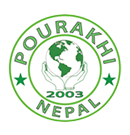
The conference presentation was co-authored with BU’s Dr. Pramod Regmi and Prof. Edwin van Teijlingen, Ms. Manju Gurung from Pourakhi, Ms. Samjhana Bhujel from Green Tara Nepal, and Padam Simkhada, who is professor in the Public Health Institute at Liverpool John Moores University.
References:
- Simkhada, P., van Teijlingen, E., Bhujel, S, Gurung, M., Regmi, P. Problems faced by Nepalese female migrants workers in the Gulf Countries: A quantitative survey’ [Abstract: 238] presented at Internat. Conf. Migration Health, Rome, 1-3 Oct. 2018, http://istmsite.membershipsoftware.org/files/Documents/Activities/Meetings/Migration/FOR%20WEBSITE%20-%20ORAL%20accepted%20abstracts%20-%20session-bookmark.pdf
- Simkhada, P.P., van Teijlingen, E.R., Gurung, M., Wasti, S. (2018) A survey of health problems of Nepalese female migrants workers in the Middle-East and Malaysia, BMC International Health & Human Rights 18(4): 1-7. http://rdcu.be/E3Ro
Ouch! Missing reference
One of the first rules of drafting a scientific paper is that one cites the key literature in the respective field. So as someone who teaches people how to write and publish in this week’s experience of getting a paper rejected was not great, if not disheartening! Earlier this week we submitted a research paper to the Journal of Travel Medicine on a study of the health and well-being of female migrant workers in Nepal. This is high quality journal in which we have published before, including one paper on migrants’ health [1-3].
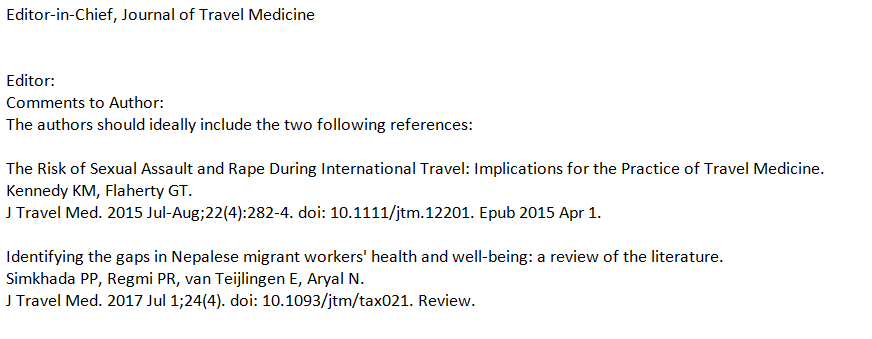 Two days later the journal editor emailed us to say: “”We feel that the scope of your paper would not justify a full original article in the Journal of Travel Medicine”, which is, in our opinion, a fair judgement. My co-authors and I between us have over 300 papers published and most have been rejected or at least we have been asked for a resubmission, so nothing new here. What was more upsetting than the rejection itself was the additional comment. The editor added:
Two days later the journal editor emailed us to say: “”We feel that the scope of your paper would not justify a full original article in the Journal of Travel Medicine”, which is, in our opinion, a fair judgement. My co-authors and I between us have over 300 papers published and most have been rejected or at least we have been asked for a resubmission, so nothing new here. What was more upsetting than the rejection itself was the additional comment. The editor added:
“The authors should ideally include the two following references:
……(first reference omitted) …. +
Identifying the gaps in Nepalese migrant workers’ health and well-being: a review of the literature.
Simkhada PP, Regmi PR, van Teijlingen E, Aryal N. J Travel Med. 2017 Jul 1;24(4). doi: 10.1093/jtm/tax021. Review.
We agree with the editor that we should have included the two listed key papers. Crucially, it is more than a little mistake to have missed the second paper since we wrote it ourselves. There are many lessons to be learnt from this: (a) check you have covered the key literature in your paper, either in the Background section and/or the Discussion; (b) don’t underestimate the importance of your own work; (c) you’re never too old to make mistakes (and to learn from them); (d) be thankful for good editors and reviewers; (e) do what you advise others to do; (f) etc. ………………
In shame,
Prof. Edwin van Teijlingen
CMMPH
References:
- Hind, C., Bond, C.M., Lee, A., van Teijlingen E. (2008) Needs assessment study for community pharmacy travel medicine services, Journal of Travel Medicine 15(5): 328-334.
- Bhatta, P., Simkhada, P., van Teijlingen E., Maybin, S. (2009) A questionnaire study of VSO volunteers: Health risk & problems encountered. Journal of Travel Medicine 16(5): 332-337.
- Simkhada, P.P., Regmi, P.R., van Teijlingen, E., Aryal, N. (2017) Identifying the gaps in Nepalese migrant workers’ health and well-being: A review of the literature, Journal of Travel Medicine 24 (4): 1-9.
New CMMPH publication on sex trafficking
Earlier this month the Journal of Manmohan Memorial Institute of Health Sciences published a paper co-authored by Centre for Midwifery, Maternal & Perinatal Health (CMMPH) staff. The paper ‘Health consequences of sex trafficking: A systematic review’ [1]. The Journal of Manmohan Memorial Institute of Health Sciences is part of the Open Access publishing of Nepal Journals OnLine (NepJOL) supported by INASP.
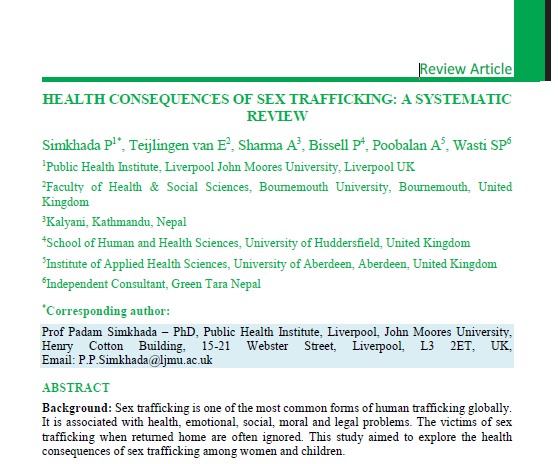 The review reminds us that sex trafficking is one of the most common forms of human trafficking globally. It is associated with health, emotional, social, moral and legal problems. The victims of sex trafficking when returned home are often ignored. This review explored the health consequences of sex trafficking among women and children. A total of 15 articles were included covering health risks and well-being related to sex trafficking. Sexual and physical violence among victims such as rape and repetitive stress and physical injuries were common. The prevalence of STI (sexually transmitted infections) and HIV (human immunodeficiency virus) was also reported as high. Being trafficked at a young age, having been in brothels for a longer period and sexual violence and forced prostitution were linked with a higher risk for HIV infection. Physical health problems reported included headaches, fatigue, dizziness, back pain, memory problem, stomach pain, pelvic pain, gynaecological infections, weight loss, lesions or warts, unwanted pregnancies and abortions. The studies on mental health reported that depression, anxiety and post-traumatic stress disorder (PTSD) were commonly reported health consequences among sex trafficking victims.
The review reminds us that sex trafficking is one of the most common forms of human trafficking globally. It is associated with health, emotional, social, moral and legal problems. The victims of sex trafficking when returned home are often ignored. This review explored the health consequences of sex trafficking among women and children. A total of 15 articles were included covering health risks and well-being related to sex trafficking. Sexual and physical violence among victims such as rape and repetitive stress and physical injuries were common. The prevalence of STI (sexually transmitted infections) and HIV (human immunodeficiency virus) was also reported as high. Being trafficked at a young age, having been in brothels for a longer period and sexual violence and forced prostitution were linked with a higher risk for HIV infection. Physical health problems reported included headaches, fatigue, dizziness, back pain, memory problem, stomach pain, pelvic pain, gynaecological infections, weight loss, lesions or warts, unwanted pregnancies and abortions. The studies on mental health reported that depression, anxiety and post-traumatic stress disorder (PTSD) were commonly reported health consequences among sex trafficking victims.
The authors of the review concluded that there is a compelling need for interventions raising awareness about sex trafficking among young girls and women most at risk of being trafficked. Most studies in this review have focussed on the physical health problems of the trafficked victims although there is also remarkable mental burden amongst those victims. Key policy makers, government officials, public health officials, health care providers, legal authorities and non-governmental organisations (NGOs) should be made aware about the health risks and consequences of trafficking. Trafficking consequences should be recognised as a health issue and all the sectors involved including regulating bodies should collaborate to fight against sex trafficking
Related research in this field at Bournemouth University include the Sexual Spaces Project by Prof. Mike Silk and Dr. Amanda De Lisio on ‘Rio’s sex workers after the Olympics’ and the The Gay and Grey Project, funded through a Big Lottery Grant and led by Prof. Lee Ann Fenge.
Prof. Edwin van Teijlingen
Centre for Midwifery, Maternal & Perinatal Health (CMMPH)
Reference:
- Simkhada, P., van Teijlingen, E., Sharma, A., Bissell, P., Poobalan, A., Wasti S.P. (2018) Health consequences of sex trafficking: A systematic review Journal of Manmohan Memorial Institute of Health Sciences, 4(1): 130-149.
Publishing systematic and scoping reviews to improve your research profile
With the forthcoming REF 2021 in mind we would like to encourage both staff and postgraduate students to consider writing up their literature reviews as journal articles. Systematic and scoping reviews are a great way of publishing quality publications. They are highly valued as REF submissions, especially, but not only, in the health field.
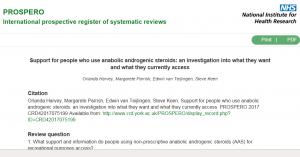
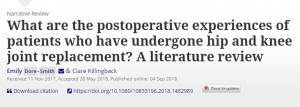 There is plenty of support at Bournemouth University: from academic colleagues, with vast experience in writing reviews, to the library team, who can advise on, for example, developing your systematic search strategy and which databases to search.
There is plenty of support at Bournemouth University: from academic colleagues, with vast experience in writing reviews, to the library team, who can advise on, for example, developing your systematic search strategy and which databases to search.
You can start with publishing your review question and research strategy on PROSPERO, international prospective register of systematic reviews. We would like to highlight just one BU example in the field of the social sciences. FHSS PhD student Orlanda Harvey published her proposed review ‘Support for people who use anabolic androgenic steroids: an investigation into what they want and what they currently access’ late last year on PROSPERO [1].
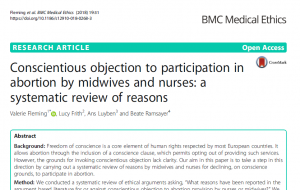
You might like to have a look at reviews published by Bournemouth University staff, which can be found by searching BURO, our institutional repository of research outputs. Moreover, BU academics have published several methods papers on the doing and writing systematic reviews [2-4].
Information about searching the literature for systematic reviews is available on this guide by the library team.
Other pages with useful information include:
- Guidance from the Centre for Review and Dissemination
- The Cochrane handbook for systematic reviews
- The PRISMA statement: Preferred Reporting Items for Systematic Reviews & Meta-Analyses
- The PRISMA extension for scoping reviews
Hopefully we have encouraged you to think about publishing your literature reviews as separate articles, and to seek help early in that process!
José López Blanco & Edwin van Teijlingen
For further information, please contact:
José López Blanco, Faculty Librarian (Health and Social Sciences), Library & Learning Support, Academic Services at tel 67350 or email: hsslibteam@bournemouth.ac.uk
References:
- Harvey, O., Parrish, M., van Teijlingen, E., Keen., S. (2017) Support for people who use anabolic androgenic steroids: an investigation into what they want and what they currently access. PROSPERO 2017 CRD42017075199 Available from: http://www.crd.york.ac.uk/PROSPERO/display_record.php?ID=CRD42017075199
- van Teijlingen E., Napper, M., Bruce, J., Ireland. J. (2006) Systematic reviews in midwifery, RCM Midwives Journal 9(5): 186-188.
- van Teijlingen, ER, Simkhada, B., Ireland J., Simkhada P., Bruce J. (2012) Evidence-based health care in Nepal: The importance of systematic reviews, Nepal Journal of Epidemiology 1(4): 114-118.
- Stewart, F., Fraser, C., Robertson, C., Avenell, A., Archibald, D., Douglas, F., Hoddinott, P., van Teijlingen, E., Boyers, D. (2014) Are men difficult to find? Identifying male-specific studies in MEDLINE and Embase, Systematics Reviews 3,78.
Congratulations on timely editorial in Nepal
Congratulations to FHSS academics Dr. Pramod Regmi and Dr. Nirmal Ayral who published an editorial yesterday in a scientific journal in Nepal. The paper ‘Experts warn Nepal Government not to reduce local Public Health spending’ [1] was co-authored by Dr. Bibha Simkhada who has just been offered a post as Lecturer in Nursing in the Department of Nursing & Clinical Sciences, she shall be starting with us on November 1st. Further co-authors include FHSS Visiting Professor Padam Simkhada and Dr . Sujan Marahatta, the journal’s editor. He is based at Manmohan Memorial Institute of Health Sciences (MMIHS) in Kathmandu, Nepal. Bournemouth University has a long-standing research collaboration with MMIHS.
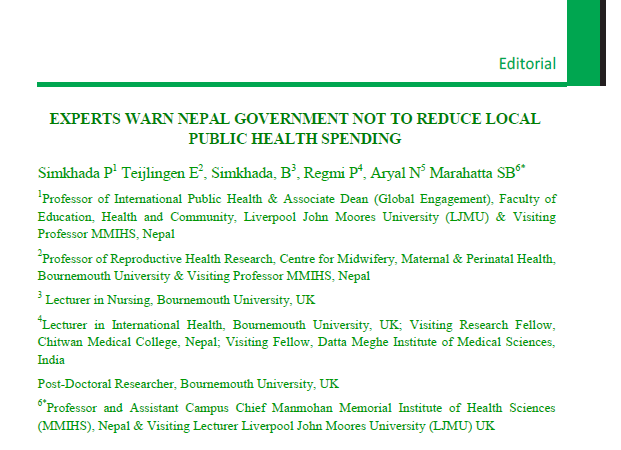 The editorial warns about the risks of losing the focus on public health and its wider national and global perspective in the recently changed political arena of Nepal. Since 2015 Nepal has moved from a central state to a federal republic, whereby the seven new Provinces have gained much more power and control in the decentralisation process. Moreover the first local elections for two decades in 2017 meant a lot of new and inexperienced local politicians were voted in. Many of these local people had little prior experience of political processes, governing health systems, the notion of priority setting, running sub-committees of elected representatives, political decision-making at local level, etc. The paper argues that Public Health can easily disappear of the radar. The untrained newly elected representatives with no political experience are most likely to be drawn into proposing and supporting popular measures including developing new buildings, black-top roads, hospitals, etc., rather than measures that increase the local or regional budget for teachers, Continuous Professional Development (CPD) for community health workers, and preventative public health measures in general. Buildings and roads are immediate demonstration to voters that politicians have done something useful, reducing maternal mortality by 2.6% or employing two additional health workers doesn’t give politicians neither the same publicity, nor do such policies have immediate signs of success, and hence are unlikely to be vote winners.
The editorial warns about the risks of losing the focus on public health and its wider national and global perspective in the recently changed political arena of Nepal. Since 2015 Nepal has moved from a central state to a federal republic, whereby the seven new Provinces have gained much more power and control in the decentralisation process. Moreover the first local elections for two decades in 2017 meant a lot of new and inexperienced local politicians were voted in. Many of these local people had little prior experience of political processes, governing health systems, the notion of priority setting, running sub-committees of elected representatives, political decision-making at local level, etc. The paper argues that Public Health can easily disappear of the radar. The untrained newly elected representatives with no political experience are most likely to be drawn into proposing and supporting popular measures including developing new buildings, black-top roads, hospitals, etc., rather than measures that increase the local or regional budget for teachers, Continuous Professional Development (CPD) for community health workers, and preventative public health measures in general. Buildings and roads are immediate demonstration to voters that politicians have done something useful, reducing maternal mortality by 2.6% or employing two additional health workers doesn’t give politicians neither the same publicity, nor do such policies have immediate signs of success, and hence are unlikely to be vote winners.
The Journal of Manmohan Memorial Institute of Health Sciences is part of the Open Access publishing of Nepal Journals OnLine (NepJOL) supported by INASP. The editorial also illustrates the kind of work conducted in Bournemouth University’s Integrative Wellbeing Research Centre (iWell).
Prof. Edwin van Teijlingen
Centre for Midwifery, Maternal & Perinatal Health (CMMPH)
Reference:
Simkhada, P., Teijlingen van, E., Simkhada, B., Regmi, P., Aryal, N., Marahatta, S.B. (2018) Experts warn Nepal Government not to reduce local Public Health spending, Journal of Manmohan Memorial Institute of Health Sciences, 4(1): 1-3.
BU NCCA Undergraduate Student Success at SIGGRAPH’18
The 45th International Conference & Exhibition on Computer Graphics and Interactive Techniques (SIGGRAPH’18), the international annual conference of the Special Interest Group on Computer Graphics and Interactive Techniques of the Association for Computing Machinery (ACM, the world’s foremost computing society) was held in Vancouver in August.
Among the work showcased at the conference was the poster “Withering fruits: vegetable matter decay and fungus growth” by Bianca Cirdei (Computer Visualisation and Animation – CVA, Level 6) from this year’s graduating cohort from the National Centre for Computer Animation (NCCA, Faculty of Media and Communication) and co-authored by Dr Eike Falk Anderson.
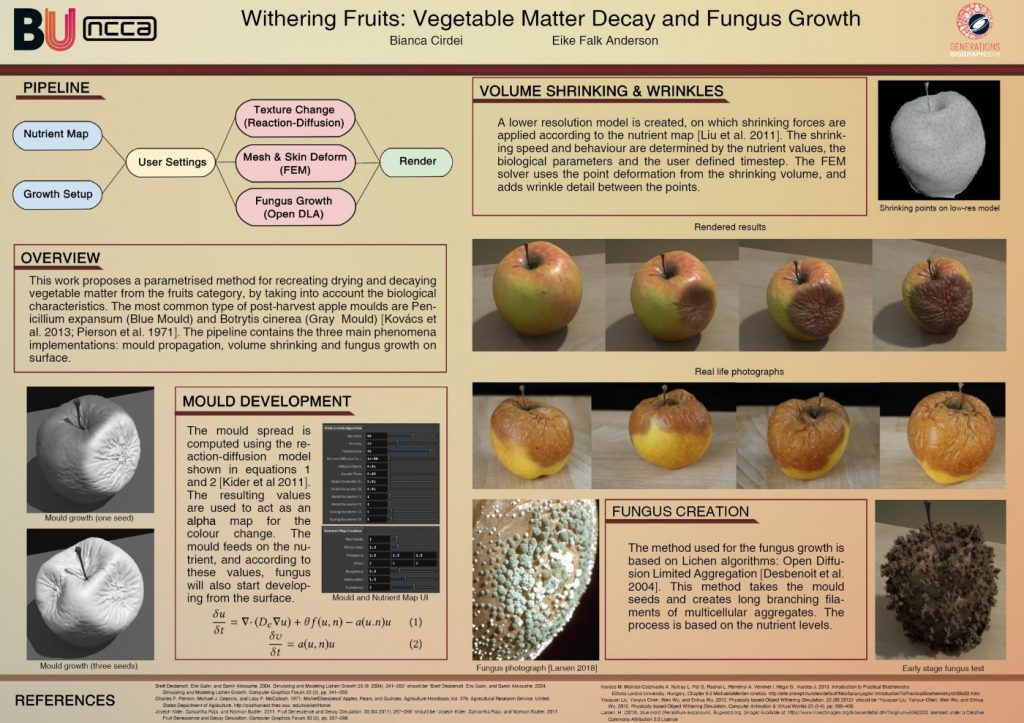
The work, which was based on Bianca’s Innovations Project unit results extends and improves existing methods for procedurally simulating decaying fruit for use in computer graphics and visual effects, focusing on artist directability and visual fidelity. As the resulting visuals are quite impressive, this project was also one of the ten submissions featured in the SIGGRAPH’18 posters preview video.
Of the 74 posters presented at this year’s SIGGRAPH conference, 16 submitted posters, including Bianca’s contribution (poster 74), were invited to the first round of the prestigious ACM Student Research Competition (SRC) sponsored by Microsoft. Bianca’s submission was one of only four European semi-finalists and of those the only one from a UK institution. After presenting the work to a panel of experts, the submission made it into the second round and after the ACM Student Research Competition Final Presentation it won first place in the undergraduate category.
After Ben Knowles (with Dr Oleg Fryazinov) who was awarded second place at SIGGRAPH’15 for “Increasing realism of animated grass in real-time game environments“, Teemu Lindborg and Philip Gifford (with Dr Oleg Fryazinov) who were semi-finalists at SIGGRAPH’17 for “Interactive parameterised heterogeneous 3D modelling with signed distance fields” and Quentin Corker-Marin (with Dr Valery Adzhiev and Professor Alexander Pasko) who achieved second place at SIGGRAPH’17 for “Space-time cubification of artistic shapes“, this is the first time that an NCCA student has won first place in this prestigious competition.
The work will now progress to the next stage of the competition, the Grand Finals in 2019, in which the first placed entries from almost 30 major ACM conferences will compete with one another.
New paper by recent BU Sociology graduate
 Dr. Andrew Harding and his BU PhD supervisors just published a new paper from his Ph.D. research [1]. This interesting paper ‘Suppy-side review of the UK specialist housing market and why it is failing older people’ reviews the supply-side of policies and practices that impact on the shortage of supply in the contemporary specialist housing market for older people in the UK. Andrew is currently based at Lancaster University.
Dr. Andrew Harding and his BU PhD supervisors just published a new paper from his Ph.D. research [1]. This interesting paper ‘Suppy-side review of the UK specialist housing market and why it is failing older people’ reviews the supply-side of policies and practices that impact on the shortage of supply in the contemporary specialist housing market for older people in the UK. Andrew is currently based at Lancaster University.
Congratulations!
Prof. Edwin van Teijlingen
CMMPH
Reference:
- Harding, Andrew, Parker, Jonathan, Hean, Sarah & Hemingway, Ann (2018) Supply-side review of the UK specialist housing market and why it is failing older people. Housing, Care and Support
join TTRAEurope2019, Tourism in the era of connectivity, Bournemouth University Department of Tourism and Hospitality www.bournemouth.ac.uk/ttra 8-10 April 2019
join us for the TTRAEurope2019, Tourism in the era of connectivity, Bournemouth University Department of Tourism and Hospitality www.bournemouth.ac.uk/ttra 8-10 April 2019
| Conference website | http://www.bournemouth.ac.uk/ttra |
| Submission link | https://easychair.org/conferences/?conf=ttraeurope2019 |
The Travel and Tourism Research Association’s 2019 European Chapter Conference will be hosted by Bournemouth University Department of Tourism and Hospitality in Bournemouth from Monday 8th to Wednesday 10th April 2019. This is a three-day conference that will include a doctoral colloquium day and industry best practice thread. The theme of the conference is Tourism in the Era of Connectivity, which covers a broad range of themes to ensure that we are inclusive of the widest range of tourism research.
People-to-people connectivity is an essential aspect of tourism; bringing people from all aspects of life together to meet, share moments and explore cultures, resources and experiences. Connectivity brings us together through shared routes, accessibility, communication, and experiences in different environments and destinations. Increasingly, global society is becoming more connected, facilitating opportunities for exchange and interaction, bringing both opportunities and challenges. Tourism is changing dramatically in the era of connectivity.
Advanced technology enables users to amalgamate information and big data from various sources on their mobile devices, personalise their profile through applications and social networks, and interact dynamically with their surroundings and context. Tourism professionals increasingly use technologies and networking to bring different stakeholders together to co-create value for all. The conference will connect the different concepts of connectivity, personalisation, tourism development and marketing towards co-creation of the tourism experience. It will explore how these experiences can support the co-creation of value for all stakeholders and address a range of components of connectivity.
Examples of the conference themes include but not limited to:
Coastal Tourism; Tourism Marketing; Economics and Planning; Culture and Heritage; Hospitality Innovations; Digital Tourism; Sustainability and Wildlife; Gender, Accessibility and Inclusion; Tourism Management; Overtourism; Tourism and Philosophy; Special Interest and Niche Tourism; Spiritual, Religious and Pilgrimage Tourism; Events and Leisure; Experience and Co-creation; Small Business and Entrepreneurship.
Submission Guidelines
All papers must be original and not simultaneously submitted to another journal or conference. The following paper categories are welcome:
- Research papers and case studies (5,000 word paper or 1,000 word extended abstract)
- Doctoral research papers (5,000 word paper or 1,000 word extended abstract)
- Applied (industry and sector) papers (1,000 word extended abstract)
- Student papers, including Masters theses (1000 word extended abstract)
Instructions to Authors
Please adhere to the following for your submission:
- Word limit of 1,000 words for extended abstracts; word limit of 5,000 words for full papers.
- Word limit includes references, tables, figures, etc.
- Please use Arial font size 12 throughout.
- Must be presented in MS Word Format, on size A4 (210 by 297 mm) paper, with margins of: left 3 cm, right, top and bottom 2.5 cm.
- Any illustrations should be of high resolution, preferably in JPEG or TIFF format.
- The page composition should be as follows:
- TITLE: In uppercase, bold, and centered.
- AUTHOR/ AUTHORS: in lowercase and the surname(s) in uppercase.
- AFFILIATION AND CONTACT DETAILS: in uppercase.
- CATEGORY: please indicate the paper category of the submissions (Research paper and case study; Doctoral research paper; Applied (industry/sector) paper; Student paper (for all students other than doctoral researchers)).
- TEXT: Arial 12, full justification and single spacing. Paragraphs will begin without tabulation and with single spacing with regard to the title or the prior paragraph.
- FIGURES AND TABLES: will be incorporated into the text in the corresponding place. They will be numbered separately (figures and tables) by order of appearance (Arabic numerals). The title, in bold and centered, will be located at the top and will be separated from the figure or table by space.
- FOOTNOTES: Please keep to a minimum. Where used they should be consecutive, with full justification and Arial 8 font.
- REFERENCE STYLE: please use the referencing style of the American Psychological Association (APA) Sixth Edition.
Important Dates
Deadline for submission: 5th January 2019
Notification for acceptance: 5th February 2019
Final submission: 1st March 2019
Early Bird Deadline: 1st March 2019
Conference: 8th-10th April 2019 **TTRA CONFERENCE IN BOURNEMOUTH**
Conference themes and call for papers
Submit papers for the conference
Contributions by academics, practitioners and phd students are welcome in the following categories:
| Categories | Requirements |
| Research papers and Case studies | Papers 5000 words or 1000 word extended abstract |
| Doctoral Research papers | Papers 5000 words or 1000 word extended abstract |
| Applied (industry and sector) papers | 1000 words extended abstract |
| Student papers (including master theses) | 1000 words extended abstract |
Confirmed Invited speakers so far
Travel and Tourism Research Association 2019
Associate Professor Luisa Andreu Department of Marketing, Faculty of Economics, University of Valencia, Spain
Professor Carlos Costa University of Aveiro, Portugal and Editor of the Journal of Tourism & Development
Professor Alan Fyall, University of Central Florida, USA and coEditor of Elsevier’s Journal of Destination Marketing & Management
Professor Scott McCabe Nottingham University and co-Editor of Annals of Tourism Research
Assistant Professor Luiz Mendes-Filho, Tourism Department, Universidade Federal do Rio Grande do Norte, Brazil
Professor Tanja Mihalic University of Ljubljana, Slovenia
Associate Professor Ana María Munar Copenhagen Business School, Denmark
Professor Nigel Morgan, Swansea University, UK
Professor Mike Peter (University of Innsbruck, Austria) The Relevance of Family businesses in Tourism and Hospitality
Professor Cleopatra Veloutsou University of Glasgow UK and co-Editor in Chief of the Journal of Product and Brand Management.


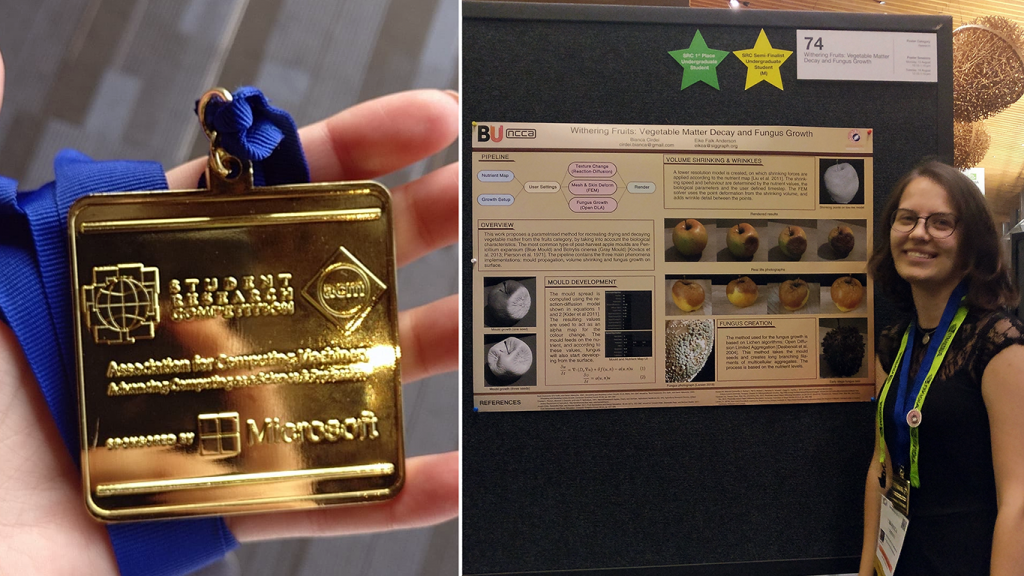
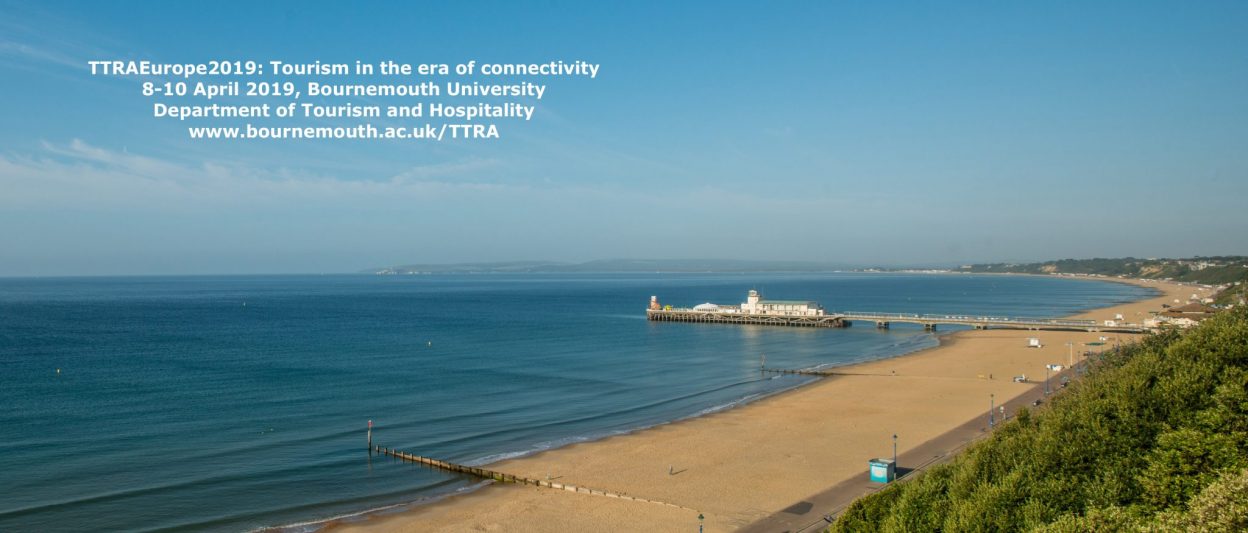











 FHSS academics teaching in Nepal
FHSS academics teaching in Nepal New weight change BU paper
New weight change BU paper One week to go! | The 16th Annual Postgraduate Research Conference
One week to go! | The 16th Annual Postgraduate Research Conference Geography and Environmental Studies academics – would you like to get more involved in preparing our next REF submission?
Geography and Environmental Studies academics – would you like to get more involved in preparing our next REF submission? Congratulations to three former BU staff
Congratulations to three former BU staff MSCA Staff Exchanges 2024 Call – internal deadline
MSCA Staff Exchanges 2024 Call – internal deadline Applications are now open for 2025 ESRC Postdoctoral Fellowships!
Applications are now open for 2025 ESRC Postdoctoral Fellowships! Horizon Europe – ERC CoG and MSCA SE webinars
Horizon Europe – ERC CoG and MSCA SE webinars MaGMap: Mass Grave Mapping
MaGMap: Mass Grave Mapping ERC grants – series of webinars
ERC grants – series of webinars